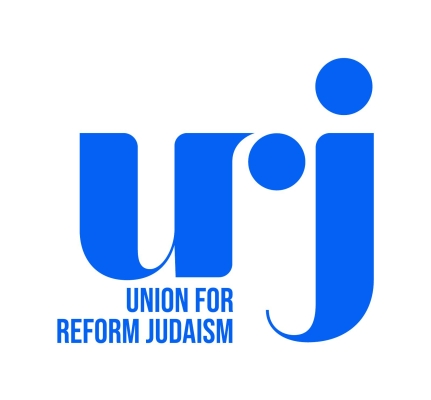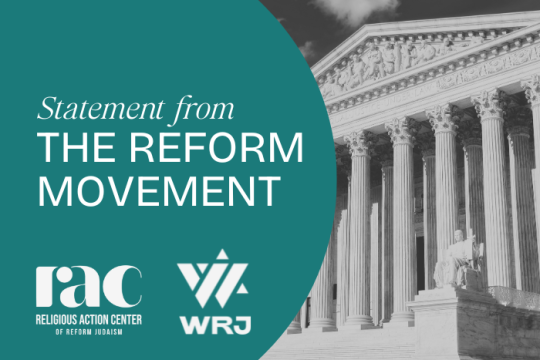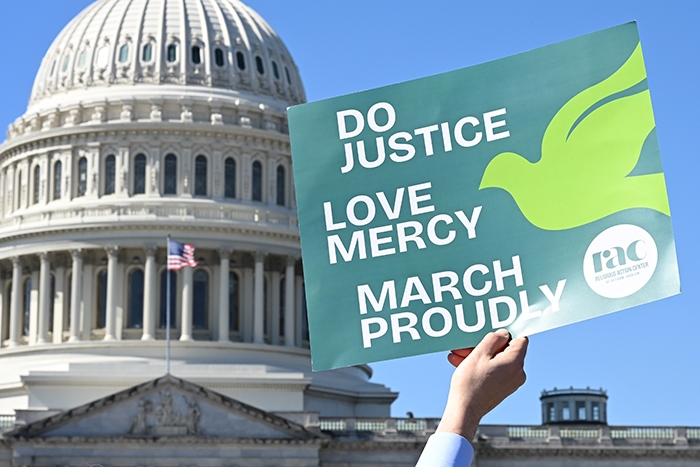June 27, 2024 - In response to the Supreme Court's decision in Idaho v. United States, returning the case concerning Idaho's near-total abortion ban to lower courts, Rabbi Jonah Dov Pesner, Director of the Religious Action Center of Reform Judaism, and Rabbi Liz P.G. Hirsch, Chief Executive Officer of Women of Reform Judaism, released the following statement:
Rabbi Liz P.G. Hirsch:
"While we are relieved that the Supreme Court has temporarily reinstated a pause on Idaho's near-total abortion ban, we are deeply concerned by the Supreme Court's decision to return the case to lower courts. For forty years, the federal Emergency Medical Treatment and Labor Act (EMTALA) has guaranteed that emergency room patients receive stabilizing care regardless of other factors. In the first Supreme Court case concerning a state abortion ban since the Court overturned Roe v. Wade two years ago, the Supreme Court had an opportunity to state clearly that EMTALA includes emergency abortion care and supersedes state abortion bans such as Idaho's that lack explicit exceptions for emergency care. Instead, the Supreme Court cited technicalities in its decision to return the case to lower courts, leaving the door open for this case or other challenges about the legality of emergency abortion care to reach the Court in the near future.
"Emergency abortion care is essential, especially during a nationwide maternal mortality crisis. One-third of pregnancies include an emergency room visit, and up to 15 percent include potentially life-threatening conditions for which abortion care might be the only treatment that can stabilize a patient. Although Idaho's law (and similar bans in other states) permits abortion when 'necessary to prevent death,' the law is medically ambiguous and does not allow for abortion care that could be stabilizing or prevent serious, if not immediately fatal, complications. This endangers the health and safety of pregnant patients, especially Black women and low-income women who are more likely to die from pregnancy-related complications. As Justice Jackson states in her opinion, 'While this court dawdles and the country waits, pregnant people experiencing emergency medical conditions remain in a precarious position, as their doctors are kept in the dark about what the law requires.' Simply put - the Supreme Court's failure to explicitly protect emergency abortion care places lives and the future of abortion rights in jeopardy."
Rabbi Jonah Dov Pesner:
"Judaism is clear that life is sacred. The commandment to save a life (pikuach nefesh) is prioritized above all other commandments and values. Furthermore, the Talmud teaches that 'One who takes a life, it is though they have destroyed the universe. And one who saves a life, it is as though they have saved the universe' (Mishnah Sanhedrin 4:5). By allowing states to deny stabilizing abortion care to emergent patients, this decision needlessly puts lives at risk. We were proud to join Reform Movement partners and a range of faith, reproductive justice, and civil rights partners in submitting an amicus brief supporting emergency abortion care.
"Today's decision makes even clearer why we must continue our work to protect bodily autonomy. We urge Congress to codify abortion access by passing bills such as the Women's Health Protection Act and the Equal Access to Abortion Coverage in Health Insurance Act. We will also continue to mobilize Jewish communities across the country to support abortion access ballot measures in the 2024 election through the Reform Movement's Every Voice, Every Vote Campaign. The fight isn't over until bodily autonomy is a right for all."
###
The Religious Action Center of Reform Judaism is the Washington office of the Union for Reform Judaism, whose 825 congregations across North America encompass 1.8 million Reform Jews, and the Central Conference of American Rabbis, whose membership includes more than 2,000 Reform rabbis. Visit RAC.org for more.
Women of Reform Judaism (WRJ) is a network of Jewish women working together to empower women and communities worldwide through the bonds of sisterhood, spirituality, and social justice. WRJ, founded in 1913, is the women's affiliate of the Union for Reform Judaism. Visit WRJ.org for more.
Explore Jewish Life and Get Inspired
Subscribe for Emails


